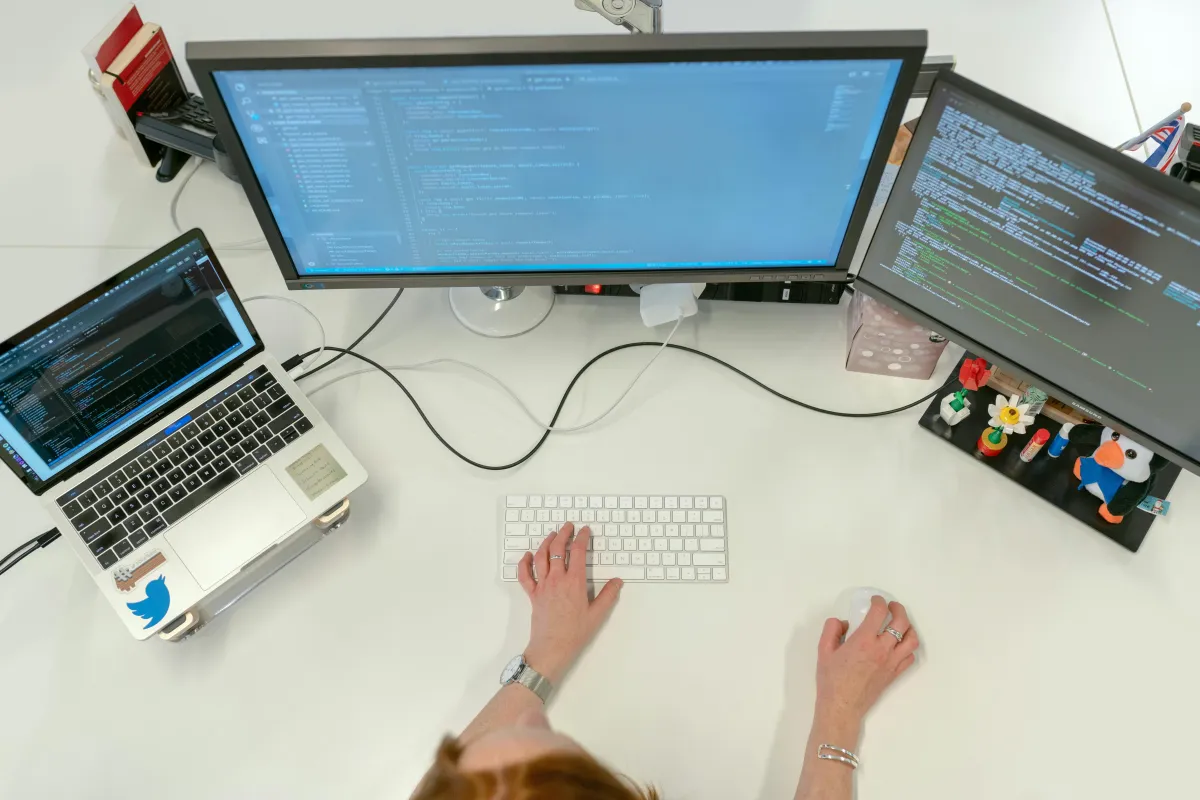
The Seattle Tech Workers Ultimate guide to House Hacking and Investing in Real Estate: Diversify your assets, grow your wealth, lower your taxes and have fun while doing it.
If you want to lower your monthly expenses, grow your net worth, and lower your taxes, then this is the guide for you.
One of my past clients told me that one of the greatest mistakes they made was not buying a home early. What they realized is that owning a home actually gives you more options than renting. When you look at the numbers, buying a home more than makes sense, even if you plan to switch jobs or potentially move in the next 5-7 years.
Admittedly, There are some big claims in this title. In this short guide, you will learn everything you need to know about buying and investing in real estate. This is not a get-rich-quick scheme. In fact, what we outline here will take you years to achieve. Most people overshoot what they can accomplish in a year, but DRASTICALLY underestimate and underperform on what they could achieve in as little as 3, 5, or even 10 years. Real Estate is a LONG term play.
There is a lot to cover here. Some you might know, most I’m sure you don't. A good friend of mine has been in the habit of saying “If you ‘Know’ but you don't ‘Do’, then you don't really know”. Doing is Knowing.
Many tech employees have stock portfolios worth millions of dollars, but they don’t have a single asset that’s producing cash flow. They are net worth rich, yet cash flow poor. The only way for them to benefit from these assets is to sell them, but once they are cashed out and spent, it’s gone forever. There is a secret trick when it comes to real estate investing that 100% avoids capital gains, and most people don’t know about it.
The idea here is to convert those stock assets into a real estate portfolio for the sale of diversification and Cashflow. Obviously, you can buy stocks that pay dividends, but you can’t control if the company decides to stop paying dividends. So diversification is key.
Last thing before we jump in: When new investors first get started, it’s easy for them to get discouraged because real estate is not as easy as purchasing stock. They look at real estate as a linear game, meaning for each unit of time input, they should receive an equal amount of cash output. WRONG! Real estate is more of an exponential game. When you first start off, you will see little or no return in your efforts. This is one reason the “House hack” is beneficial- because it can speed up the process, and lower your risk.
All that said, here’s what we’ll cover.
The benefit of working in tech.
Renting is a sunk cost.
Lost appreciation makes the sunk cost of rent even higher.
This isn’t your “dream home”
Don’t day trade Real estate.
Long-term gains, Cashflow, and the 2-year plan. Don’t quit your day job.
Fear, black swan events & long-term planning.
Why interest rates don’t matter.
Tax benefits of owning
No money down loans, First time buyer programs, Get Rich Quick, Debt, Leverage, and Equity.
The secret to 100% avoiding capital gains and income tax in real estate investing
Let's Get started. Please excuse my brevity. I don’t want this to be too long. So I’ll work to be brief. Hopefully, my candor will resonate.
The benefit of working in tech:
Being that you work in tech, you likely have a steady paycheck, a generous 401(k) program, and resources to easily qualify for a mortgage. This is an advantage that most investors lack, and you must use this to the best of your ability.
A lot of long-term wealth-building gurus and the FIRE movement pundits preach that you should work to save 40% or more of your income in order to invest. I also believe in pushing yourself to save for the purpose of investing. The more the better. 40,50,60%
By way of example, if you are making 250,000 a year, could you find a way to live off of only 20% of that? 50,000 a year? And save the rest?
I’m guessing when you were in college or right out of college your expenses were low enough that 50k a year wasn’t too restrictive. If you had maintained that lifestyle and that budget, you - in this example - could be saving 200,000 a year for a down payment. That’s 20% down on a 1,000,000 property!
Only make 70k a year - well, if you live off 50K, that’s still 20k a year saved.
You get the idea.
Renting is a sunk cost.
Elon Musk recently said “The biggest mistake I see people making is to assume they're smart” and “I hate when people confuse education with intelligence, you can have a bachelor's degree and still be an idiot”
Even though you know renting is literally throwing money away, you, me, and others still did it.
When my buddy and I got into trouble as kids growing up he told the teacher something I’ll never forget, “sometimes good kids do dumb things.”
Let’s look at the math.
While saving up to buy my first place I lived in a tiny 1-bed apartment for $1500 a month. I lived there too long and should have bought sooner. I lived there for 7 years.
(1500 x 12) x 7 = ONE HUNDRED TWENTY-SIX THOUSAND DOLLARS.
Gone. No interest, no equity, no ROI.
Could I have bought it sooner?
Yes. And I should have.
Right now, according to Rentometer.com, the average 2 bedroom 1 bath in Ballard is renting for $2,994 (6-27-24) up from $2,142 per month back in 2022...
Let's do the math assuming you’ve been renting for the last 3 years. (2,994 x 12) x 3 = $107,784.00
Again, thats: One Hundred Seven THOUSAND Seven Hundred Eighty Four Dollars. Damn.
Gone. No interest, no equity, no ROI.
Actually, I guess that's not true, your landlord got all those benefits… It's just that you didn’t…
I'm not a fan of the “Be SuRe tO ComPare “apPleS to ApPleS” approach because no one really rents exactly the same property they’d buy. People tend to rent based on “Value” and buy based on emotion and desire - sometimes even ego.
I rented a small place to save money. I didn’t rent a nice 2 or 3-bed place. Again, if you're planning to buy a 4-bedroom house in a good neighborhood, but would be willing to rent a 3-bedroom in a lower-cost neighborhood, the comparison between your rent and your monthly mortgage payment breaks down. It’s a false equivalency. You cannot compare apples to apples.
Also, If you are renting a 3-bed home, and not buying because your rent is less than what could pay for a mortgage, you're doing your math wrong.
You read that right, you are doing your math wrong.
Remember, not all data is created equal. Garbage in = Garbage out.
Let's use the current median home price in Seattle, as of this writing is $957,989. That’s for homes and townhomes, not condos.
Here's how you're not calculating this correctly.
Lost appreciation makes the sunk cost of rent even higher.
You’re not calculating the opportunity cost of potential gained appreciation at Seattle's historical average of 6%, or the historic national average of 4.4%, or Seattles actual year over year gain of 5.8% (May 2023 - May 2024). You are losing far more money than just the rent you are paying out of pocket.
That’s right, your loss is more than just the rent, it's the future opportunity cost of ownership - and that equals appreciation in equity. Even at a paltry 3% this cut’s deep.
So let's say you bought a home today for that price with 10% as your down payment. (If you can do more, I suggest you do. We work with people all the time who are putting down 20-30%, but even in today's tight market, we’re still winning for folks who can only afford 10% down)
So an asset that you purchased is worth $957,989 and grows slowly at take the conservative national average at 4.4% = $42,151.51 a year… But you didn’t make the purchase so you LOST that gain. Wild right?
Even more still, you didn’t even have you buy it all at once, you only put 10% down, and the bank let you control the whole asset.
You Can’t Do That With Stocks. Try going on Robinhood or public and paying 10% for amazon or google stock! They won't let you! But in real estate…
So your rent is $2,994 a month, but your conservative monthly loss of equity is $3,512.62 a month at the nations average appreciation rate of 4.4% - so you are throwing away $78,079.00 a year.
How did I get that number?
Your sunk cost of rent: (2,994 x 12= $35,928)
PLUS, your lost opportunity cost of appreciation: (3,512.62 x12 = $42,151)
Equals $78,079.00 a year lost.
That's a conservative EIGHTY THOUSAND Dollars a YEAR!
Even if you did this math using a 3% appreciation rate, which is under the national historical average, the numbers are still wild to look at.
$957,989 x 3% = 28739.67 / 12 = $2,394.97 + your rent at $2,994 = $5,388.97 lost each month. That's 64667.67 a year, ... lost to the sands of time.
What if you used the current appreciation numbers for Seattle of 5.8% YoY? Even More staggering.
These are far more accurate calculations of what it’s actually costing you to rent.
What's worse, if you are reading this, you could have purchased a home a few years back, rented some rooms to some buddies, and brought your monthly mortgage out-of-pocket expense way down…
This is one of the reasons studies show that homeowners' net worth is 45X greater than renters.
Cool?
Cool.
Now I get it. That monthly Payment that was rent, and is now a principle and interest payment doesn't all transfer over to a gain in your favor. But It's not a 100% loss like rent either. Plus, with renting you never control equity.
But your probably looking at the gain in equity wrong too.
You didn't invest the full $957,989 in this scenario when you bought. You put 10% down, remember? That's only $95,798.90. and in our scenario, you gained 5.8% in appreciation - or about $55,563.36. If you are doing your math correctly, that's a cash on cash return of 58% YoY. Show me how you do that in the stock market in a way you can set it and forget it?
What we'll discuss in part 2:
Next time we’ll talk about what and when to buy, long-term goals, cashflow and when to quit your day job.
Justin H Gazabat

Justin H. Gazabat

Justin H. Gazabat


Compass is a licensed real estate broker and abides by Equal Housing Opportunity laws. All material presented herein is intended for informational purposes only. Information is compiled from sources deemed reliable but is subject to errors, omissions, changes in price, condition, sale, or withdrawal without notice. No statement is made as to the accuracy of any description. All measurements and square footages are approximate. This is not intended to solicit property already listed. Nothing herein shall be construed as legal, accounting or other professional advice outside the realm of real estate brokerage.

